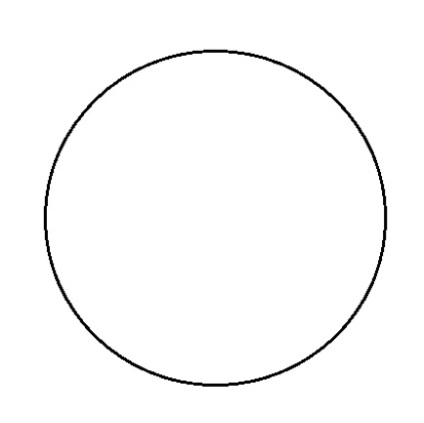The only thing we can know is what we believe we know – but to know in itself is impossible. This is because there is no means of justification that is in itself not reliant on other propositions. When we try to justify any belief, we must ensure this justification is valid, and that that validation is also valid, and that that validation is also valid, ad infinitum. An infinite regress, however, is not necessarily problematic.
Consider by analogy the concept of π (pi). We use π to make calculations regarding a circle’s circumference in relation to its diameter. However we don’t actually use π in our calculations, we usually use the approximation of π, sometimes 3.14. π, however, is an irrational number whose decimal representation never ends and never settles into a consistently repeating pattern. The more decimal places we add to π, however, the more accurate our description of a circle’s circumference becomes. 3.14 is less accurate than 3.14159 which is less accurate than 3.141592653589… But even so, we use our imperfect approximations of π in our calculations in regards to architecture and engineering with pragmatic success.
Entertain another analogy, that of making a circle using Microsoft Paint:
This is a circle made in Microsoft Paint
If we were to zoom in, we would be able to see that the seemingly round edges are incredible jagged and only give the illusion of roundness when seen from a distance (or from a low enough level of magnification). We could zoom in and “round” out those edges by adding more pixels, but no matter how much we increased the resolution, at a high enough magnification we would still be looking at those jagged edges. It is only approximately circular. This, in my view, represents the problem of π. We live in a world pixilated by the atoms that compose it and though we can imagine the circle and grasp the concept, we cannot realize it in the real world. Each expansion of the circle’s resolution and of the decimal places of pi, however, brings us closer to a perfect circle, even if it lies an infinite distance away.
I can imagine that this might seem very defeatist for some, we can’t make circles and we can’t know anything – so what’s the point in pursuing them? In my view, this is humbling, exciting, and comforting because it gives us an infinite world to explore and discover ensuring that we never get bored (most importantly, however, this assessment seems accurate). It is in this quest for knowledge that science and philosophy bring us further on our journey towards an infinitely distant goal post – but further nonetheless. Even with an unlimited set of integers to work with, no one can reasonably argue that a millionaire (all other measures of wealth or success being equal) is wealthier than a billionaire. Likewise, I would argue that in the processes of becoming more knowledgeable we attain the most valuable asset to our lives that will only make us richer. Even if we can get richer still (by adding $1, one decimal place, another layer of pixels, another further validation of a justification, etc.) that does not make some knowledge worth less than none at all.
If this still seems problematic, one just needs to realize that what we are talking about when we consider knowledge is that there are two categories of knowledge: knowledge (that we can describe as pragmatic, practical, or weak) and Knowledge (that we can describe as idealistic, absolute, or strong). This is good news for most, but bad news for the philosopher.
For the latter, what we need is Jtb, with a capital “J.” Unfortunately, some form of ultimate justification, (J, the Prime Justification, the First Justifier, etc.) cannot be given for any truth claim resembling Knowledge. While many theories have touched on the level of surface knowledge, there does not seem to be an account for knowing that you know, which is what seems to be required by that idealistic Knowledge.
Luckily, we don’t need this capital-K-Knowledge to live our lives. We have enough lowercase-k-knowledge to not drive 90 mph into brick buildings, to drink a glass of arsenic milk before bedtime, and that your angry spouse continues to exist even when you leave the room. We know these things, but we don’t Know them.
